Brazil’s state-run oil company Petrobras recently sent a team of production specialists to Venezuela at the request of socialist dictator Nicolás Maduro, Bloomberg reported over the weekend.
The reported arrival of Brazilian oil production specialists marks the latest visit of foreign oil company representatives to the South American nation after the administration of U.S. President Joe Biden gifted a generous oil and gas sanctions relief package to the Maduro regime in October. The leftist Brazilian government is apparently moving forward with collaborations with Venezuela despite Biden administration threats to reinstate the sanctions.
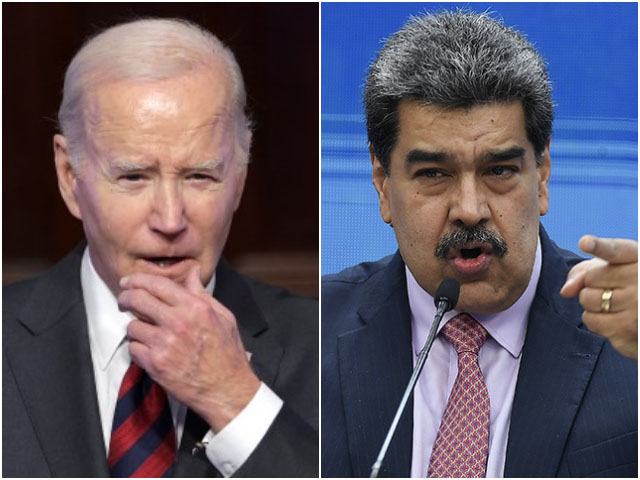
U.S. President Joe Biden speaks about supply chain resilience during an event with members of his cabinet and administration in the Indian Treaty Room at the Eisenhower Executive Office Building on November 27, 2023, in Washington, DC. (Alex Wong/Getty)
The Brazilian delegation reportedly conducted a courtesy trip to the oil fields in Lake Maracaibo, located in the western state of Zulia. Zulia is a key region for Venezuela’s oil production. Much like the rest of the country’s oil infrastructure, the state itself has been pushed to the brink of near-ruin as a result of more than two decades of socialist mismanagement, leaving the lake largely contaminated with chemicals and bacteria.
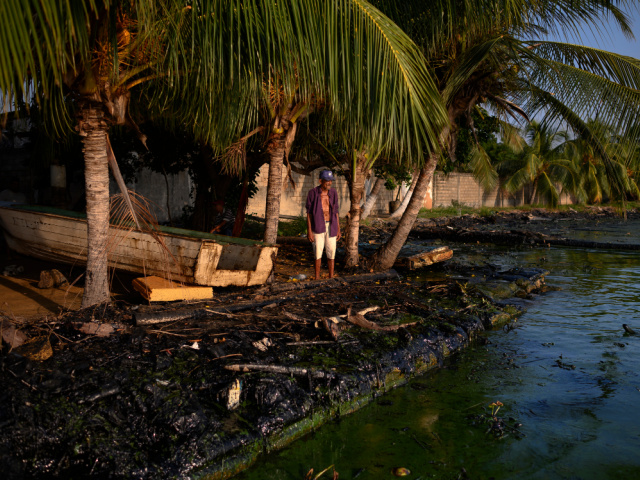
A fisherman on the oil-covered shore of Lake Maracaibo in El Bajo, Zulia state, Venezuela on Saturday, Nov. 18, 2023. A decision by the US on Oct. 18 to ease sanctions in exchange for greater political freedom in Venezuela, has opened the doors for dealmaking and increased production that will enable the Latin American country’s crude to reach global markets (Gaby Oraa/Bloomberg via Getty Images).
Biden’s relief package lifted sanctions imposed in 2019 by the administration of former President Donald Trump on Venezuela’s state oil company PDVSA in response to the Maduro regime’s continued human rights violations. The still-active sanctions relief allows PDVSA to once again freely sell its oil in U.S. and international markets, effectively restoring the authoritarian socialist regime’s main source of revenue.
Since then, countries like India and China have engaged in talks with the Maduro regime to resume the purchase of Venezuelan oil, while international companies such as the Spanish conglomerate Repsol and France’s Maurel & Prom have agreed to reactivate and expand their respective oil and gas joint ventures with PDVSA.
In addition to Petrobras specialists, Bloomberg states Venezuelan Oil Minister Pedro Tellechea recently announced visits from other international oil companies such as Algeria’s Sonatrach SpA, Bolivia’s YPFB, and Mexico’s Petroleos Mexicanos.
Reports published in December indicated that the Maduro regime is expecting to experience a substantial increase in oil export revenue in 2024 as a result of all of the new agreements signed, thanks to Biden’s sanctions relief package.
In return for that broad sanctions relief package, Maduro provided a series of vague promises to consider holding a “free and fair” presidential election sometime during the second half of 2024. The regime completely violated the terms of the agreement almost immediately after signing it, increasing repression of political dissidents and overriding the deal to host a real election in late 2024. Caracas, instead, announced a sham presidential election scheduled for July 28. María Corina Machado, the opposition’s frontrunner candidate, remains banned from running against Maduro in July’s sham election.
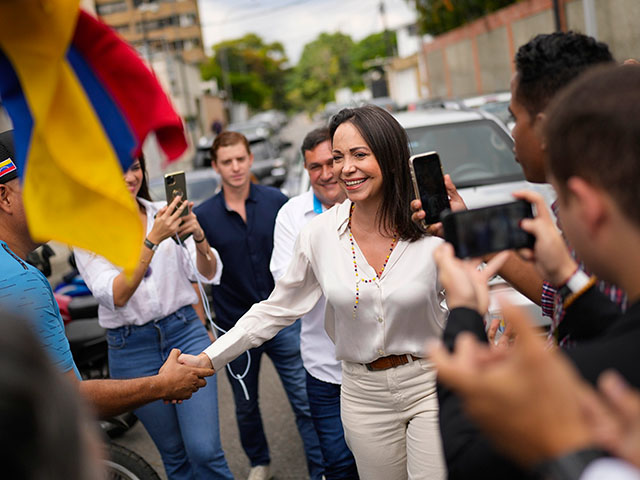
Supporters greet opposition presidential hopeful Maria Corina Machado as she arrives at a polling station to cast her ballot during the opposition primary election in Caracas, Venezuela, Sunday, Oct. 22, 2023. The opposition will pick one candidate to challenge President Nicolás Maduro in 2024 presidential elections (AP Photo/Matias Delacroix).
Although the White House has threatened to reimpose oil and gas sanctions on the Maduro regime by April, Bloomberg’s report stated that major oil companies are “betting” that the Biden administration refrains from reimposing oil and gas sanctions on Venezuela to “keep down global oil and US gasoline prices” under the reasoning that Biden is facing a tough reelection campaign against Donald Trump.
Assistant Secretary of State for Western Hemisphere Affairs Brian Nichols claimed last week that Biden’s generous sanctions relief package was “not enough” to convince Maduro to hold a “free and fair” election.
Prior to Biden’s sanctions relief, the Maduro regime had been desperately trying to restore Venezuela’s run-down oil industry. In recent years, Venezuela has received the aid of its key anti-U.S. ideological ally, Iran, to help repair refineries after decades of socialist neglect pushed them to the brink of ruin.
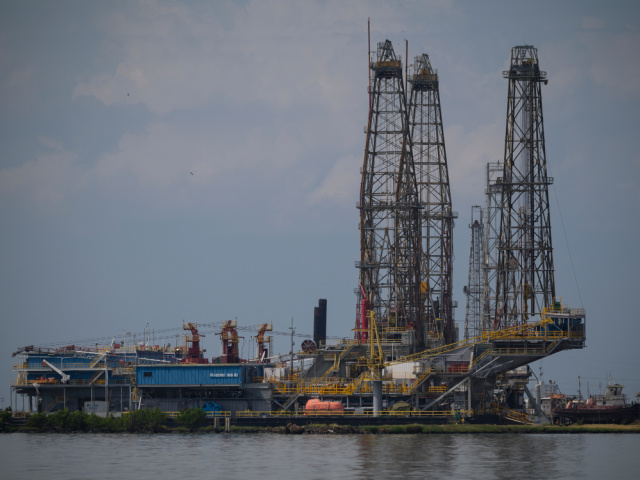
An oil refinery at the Paraguana Refinery Complex on Lake Maracaibo in Maracaibo, Zulia state, Venezuela, on Wednesday, Nov. 15, 2023 (Gaby Oraa/Bloomberg).
Iran has not only helped Venezuela repair its refineries and reduce its reliance on U.S.-based technology, but also began to refine its own oil in Venezuelan territory in 2022.
Venezuela, Iran, and Syria announced in 2023 that they would build a joint refinery in the Syrian town of Homs. If successfully built, the planned 140,000 barrels per day (bpd) refinery will result in profits for all three rogue regimes.
Christian K. Caruzo is a Venezuelan writer and documents life under socialism. You can follow him on Twitter here.
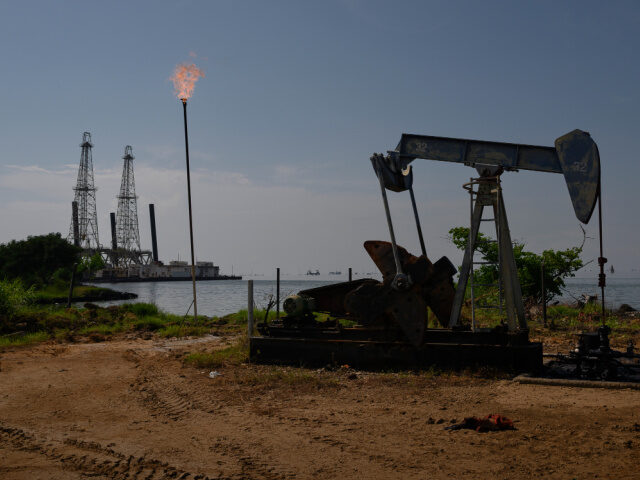
COMMENTS
Please let us know if you're having issues with commenting.